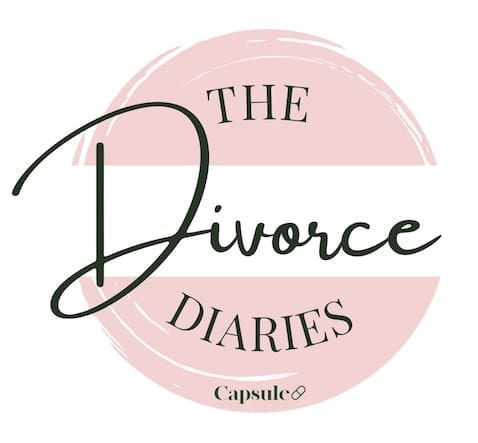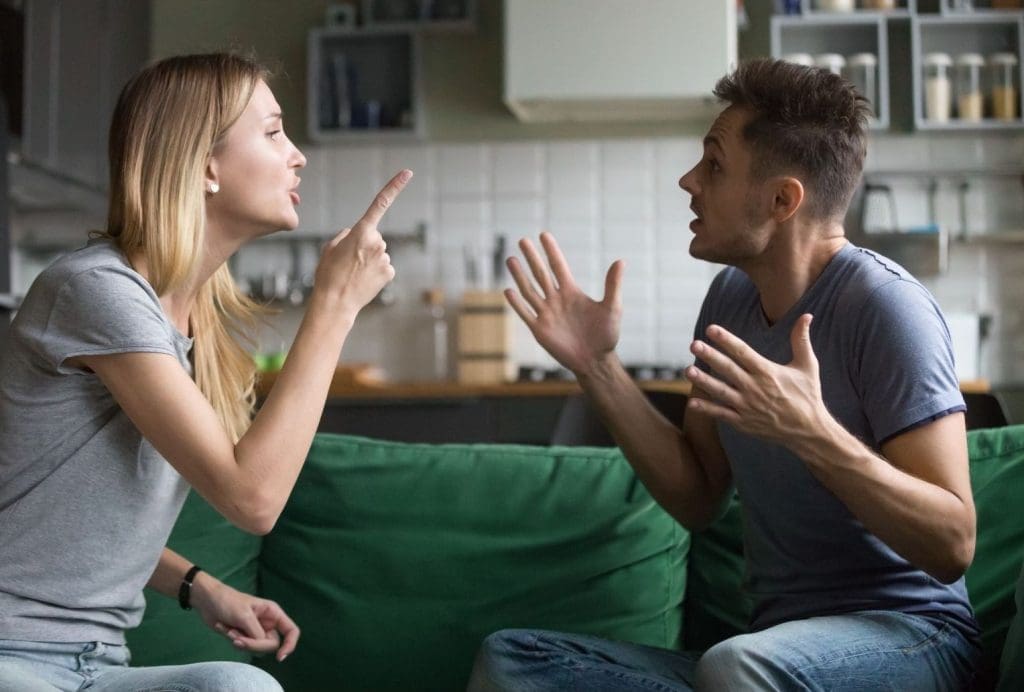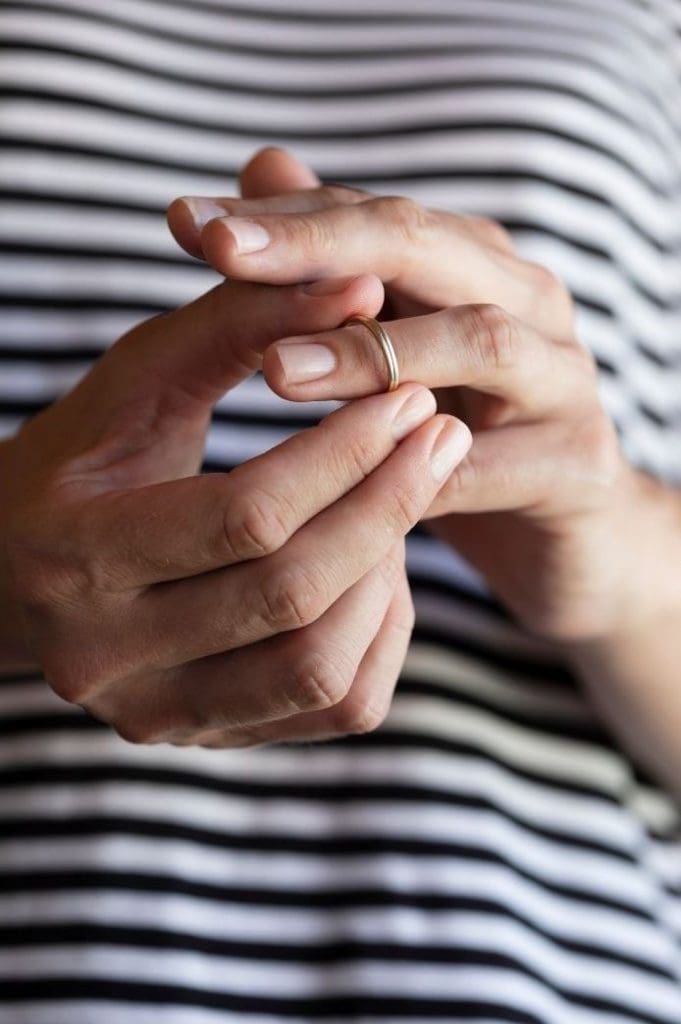

Welcome to our series, The Divorce Diaries. In the past four instalments we’ve covered everything from the effect lockdown had on relationships to whether divorce is contagious. We have now spoken to dozens of women – including one who divorced her husband after she finally discovered he’d had a vasectomy 20 years earlier and failed to tell her… even though they’d been trying for a baby for a year.
This week we look at the decision-making process and the emotional rollercoaster involved in answering the question: should I stay, or should I go?
It took Kelly three and a half years to finally tell her husband the words that had been bouncing around her head for much of that time: “This isn’t working. We need to divorce.”
They were often on the tip of her tongue when she and Mike* were screaming at each other for not emptying the dishwasher or for leaving wet towels on the floor, or when she was feeling resentful for being the only one who seemed to be responsible for ferrying the kids to and from school, soccer practice, or friends’ birthdays – even though they both worked full time. They flashed in her head when her husband sent her screenshots of their bank balance questioning her for buying an expensive sandwich for lunch instead of taking something from home.
“That one used to grind my gears the most,” she says. “I’d always considered myself to be a saver, not a spender until I met Mike. I’m good with money, but when you have two sons and a fulltime job, sometimes – a lot of the time, actually – you need to buy things out of convenience, and we could afford it!”
Little by little, she had grown to resent Mike – who she had been with since she was 21. But 19 years later – 11 of them as husband and wife – they had become different people and instead of growing together, they had grown apart.
“I’m not the person I was when I was 21, but every time I got into a row with Mike, I’d feel like I was 21 again, or he would bring up things I said/did/thought when I was that age as if I should still be held accountable.”
But despite their differences becoming glaringly obvious and them spending increasingly less time together, she never brought up the D word. “I was afraid, I guess,” she says. “I really only knew a life with Mike. We had so many shared friends and memories. His family were my family, and our children were so young. I wanted to do right by them. We also had a house and shared finances and I just couldn’t imagine how we’d untangle ourselves from one another. And, l loved this man. We had years and years of happiness and I wondered if this might just be a bad patch.”

The indecision was agonising. She spent years thinking, ‘maybe when both kids are at school/the house renovations are finished/we pay off a decent chunk of the mortgage things will be better.’ But her list of “maybe-when’s” was only getting longer.
When those six words finally escaped her mouth, they weren’t in the heat of the moment of an argument – they came after years of reflection, which had led her to the conclusion that she owed it to her children to show them a better example of what a healthy relationship looked like.
“I had some friends and family say to me, ‘but what about your kids?!’ which terrified me, because it’s exactly what I was worried about. But, how healthy was it to see us fight, or bicker, or give each other the silent treatment, or avoid one another? I’d hate to see them in a relationship like that, so why was I showing them that as an example of what a relationship is supposed to look like?”
Mike’s response was to suggest counselling, which they tried, but didn’t save their marriage. “I really did try, but I’d also been thinking it for so long that my mind was quite made up,” tells Kelly.
Steven Dromgol, the Director at Relate – who provide relationship and marriage counselling – says that often couples leave it too late to seek help. “Mmost of the couples who come to see us have spent years in distress. In most cases, people wait about six years before turning to counselling – it’s one of the reasons why couple’s counselling sometimes is not as affective, and one of the reasons why it needs very specialist training – we’ve got couples who’ve literally tried everything and it’s kind of like the last step out the door.”
By then, it’s often too late to turn around behaviours – particularly four that happen in nearly every single fight (criticism, defensiveness, contempt and stonewalling). If couple’s can’t find healthy solutions, or antidotes to those behaviours, counsellors can give them the tools they need – but they’re certainly of less help once years and years of damage has been done.
Often, it’s not until the divorce/separation option gets put on the table that couples finally decide it’s time to get some intervention.
Bridgette Jackson, divorce coach and owner of Equal Exes, says she has clients who are in the middle of a divorce, or have been blindsided with a separation – but many come to her when they’re still in the early stages of working out whether or not they should stay in the relationship and are open to finding ways to making it work.
Ultimately, she says, only her client can make that big decision for themselves – and it’s always an emotional rollercoaster – but she can point them in the right direction. “I’m not pro-divorce,” she says, which people often wrongly assume when they hear her job title.
She helps her clients – who are mostly female – to evaluate what would be best for them moving forward. Online, she offers a short quiz to help potential clients get a bit more clarity, as well as a workbook to go through at their own pace to understand where their relationship is at, what choices are available and what the next steps could be.
She also coaches clients one-on-one. “We look at the signs that the relationship is potentially over, versus what we would want to preserve in the relationship,” she tells. “We look at, well, what do you want? What needs to go? What’s not serving you, or your partner well in the relationship? We take a look at it from the partner’s perspective too. Then we look into things like how your life would be impacted – socially, financially, career-wise. We look at all those facets of life and them after a few sessions with me they have some clarity about whether they want to decide to go, or stay.”
From there, she may help them to engage a relationship counsellor, or give advice about strategies to have open conversations with their spouses – or, she’ll help them formulate a plan to break the news that they would like to separate.


“Often I refer people to a counsellor if they’ve decided to stay, because I’m not one, and you need more than just friends and family to talk to,” she says. “Friends and family can be fantastic, don’t get me wrong, but they’re not professionals. They might really want you to stay together, and say things like, ‘you need to make it work, you need to get back with him’. You need to get some professional unbiased guidance around you.”
In her experience, relationships can be brought back from the brink. She’s had couples who found a way back to each other, like Lucy and Charles who had been together for five years, and money (like in many relationships!) was their main dispute area. It became a trigger that went far beyond just arguments about money, but spilled into all aspects of their relationship. Working through the online book, they were able to work out what their top 5 issues and concerns were and how they could begin to address them. Once they were able to have constructive discussions about the things they did not agree on, they were able to put together a framework for future decision making that they both felt good about.
But, for others, the decision to leave the relationship is the best thing they can do for themselves, and their families.
It’s a situation Bridgette knows only too well, after going through her own difficult divorce. After years of being unhappy, or believing that her toxic marriage was ‘just normal’ there was one question she asked herself that was the catalyst to leaving. “I thought of myself at 85, dying and thinking, ‘God I regret my life’ and I thought, is that what I want?” she says. “Life is about having no regrets and acting in your best self. I say to clients, when you through this process, you want to look back in two years and five years and go, ‘Well, I did my best. I did a really good job. I did the best I could.”
THE DIVORCE DIARIES
If you’d like to share your own experiences, tips or advice (we can keep you anonymous if you’d prefer!) please do email me at [email protected].
Missed an instalment?
Catch-up here!
Week one: Women Tell: ‘My Lockdown Betrayal’ ‘He Ended Up With My Pilates Instructor!’ Charting the Rise of Divorce Coaches in NZ
Week two: When Are You Most At Risk of Splitting? Plus, Can Divorces Be Contagious?
Week three: “My Husband Didn’t Tell Me He’d Had a Vasectomy Until A Year Into Trying For a Baby.”
Week four: “Mum’s Reaction Was: ‘Oh Darling, I Kept Telling You to Get Your Grey Roots Dyed!’” What to – and What NOT to Say – After a Split
*Names in this story have been changed to protect identities.

